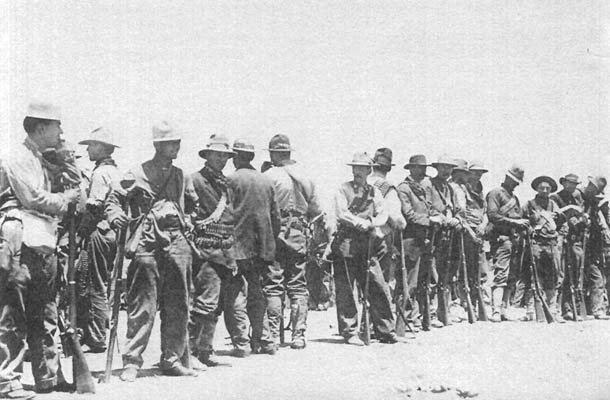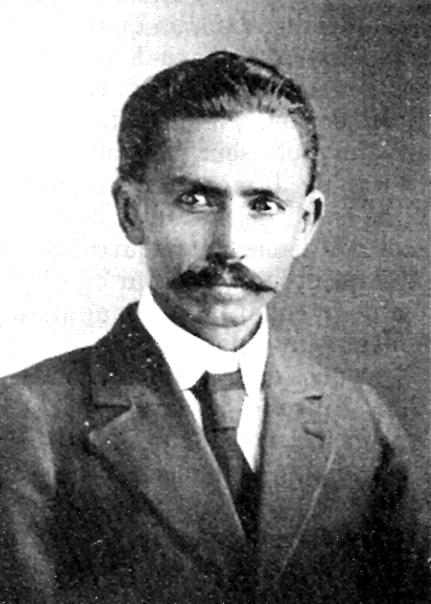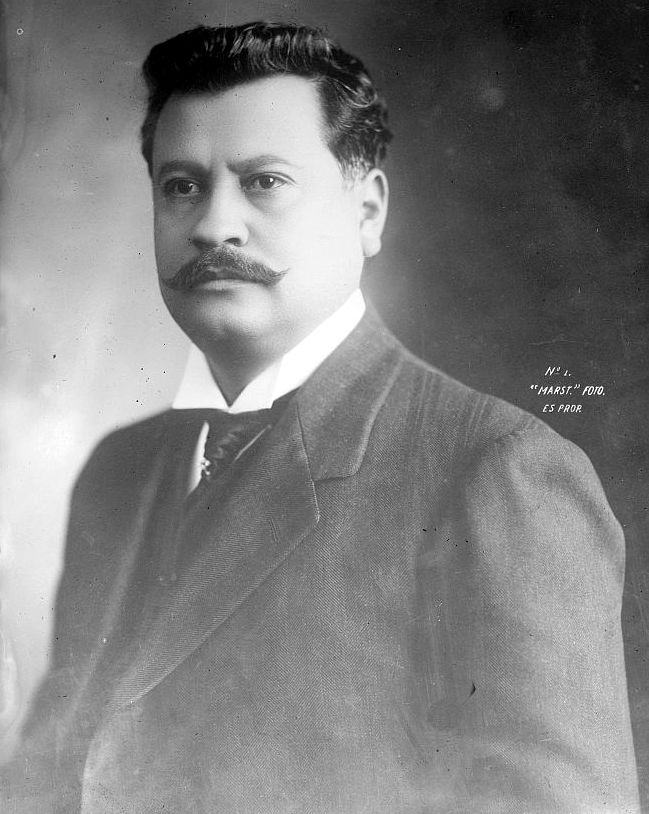|
Regeneración
() was a Mexican anarchist newspaper that functioned as the official organ of the Mexican Liberal Party. Founded by the Flores Magón brothers in 1900, it was forced to move to the United States in 1905. Jesús Flores Magón published the paper (along with Anselmo Figueroa, a leading member of the party), while his brothers Ricardo and Enrique contributed articles. The Spanish edition of was edited by Ricardo, and the English version by W. C. Owen and Alfred G. Santleben. The first era of focused on denouncing figures of authority through stories contributed by the newspaper's readership. This era ended due to its criticism on the Diaz administration. The second era witnessed increased cooperation and readership as well as the addition of an English section. The newspaper managed to reach a wide audience, both inside and outside of Mexican borders, thanks to assistance from militants and supporters. In fact, the newspaper found its way into regions such as Canada and E ... [...More Info...] [...Related Items...] OR: [Wikipedia] [Google] [Baidu] |
Anselmo Figueroa
Anselmo L. Figueroa (April 21, 1861 June 14, 1915) was a Mexican Americans, Mexican American anarchist political figure, journalist and member of the Organizing Council of the Mexican Liberal Party (MLP). He was imprisoned in the United States between 1911 and 1914 due to violations of U.S. neutrality laws. He published ''Regeneración'', the official newspaper of the MLP, before and after his imprisonment. Biography In September 1910, Figueroa was put in charge of the publication of ''Regeneración'' in Los Angeles, California. The newspaper was in its fourth season as the official publication of the MLP, and its slogan was "Revolutionary Weekly". He collaborated with Ricardo Flores Magón, Lazaro Gutierrez de Lara, Antonio I. Villarreal and Enrique Flores Magón, who had been released from prison in Arizona in August. Together with Ricardo and Enrique Flores Magón, he signed the Manifesto of the Mexican Liberal Party on September 23, 1911. The document took an openly anarchocom ... [...More Info...] [...Related Items...] OR: [Wikipedia] [Google] [Baidu] |
Anarchism In Mexico
Anarchism in Mexico, the anarchist movement in Mexico, extends from Plotino Rhodakanaty's organization of peasant workers in the 1890s, to Ricardo Flores Magón's activism prior to the Mexican Revolution, to the punk subcultures of the 1990s. Origins and early movement The Mexican anarchist movement originated in the mid-19th century, a product of both Mexico's unique historical development and European influences. Utopian ideas and movements went back further. Vasco de Quiroga attempted in the 1530s to create Thomas More's ''Utopia'' in two communities, while the priest and senator José María Alpudre tried to start another socialist community of Freemasons in 1825. In 1828, the English socialist Robert Owen requested permission from the Mexican government to start a utopian colony in Texas. Melchor Ocampo, a Mexican radical, while in exile in New Orleans read Charles Fourier and Pierre-Joseph Proudhon and translated a chapter of the latter's '' Philosophy of Poverty''. ... [...More Info...] [...Related Items...] OR: [Wikipedia] [Google] [Baidu] |
Ricardo Flores Magón
Cipriano Ricardo Flores Magón (, known as Ricardo Flores Magón; September 16, 1874 – November 21, 1922) was a noted Mexican anarchist and social reform activist. His brothers Enrique and Jesús were also active in politics. Followers of the Flores Magón brothers were known as Magonistas. He has been considered an important participant in the social movement that sparked the Mexican Revolution. Biography Ricardo was born on 16 September 1874, in San Antonio Eloxochitlán, Oaxaca, an indigenous Mazatec community. His father, Teodoro Flores, was a Zapotec Indian and his mother, Margarita Magón was a Mestiza. The couple met each other in 1863 during the Siege of Puebla when both were carrying munitions to the Mexican troops. Magón explored the writings and ideas of many early anarchists, such as Mikhail Bakunin and Pierre-Joseph Proudhon, but was also influenced by anarchist contemporaries Élisée Reclus, Charles Malato, Errico Malatesta, Anselmo Lorenzo, Emma ... [...More Info...] [...Related Items...] OR: [Wikipedia] [Google] [Baidu] |
Mexican Liberal Party
The Mexican Liberal Party (PLM; es, Partido Liberal Mexicano) was started in August 1900 when engineer Camilo Arriaga published a manifesto entitled ''Invitacion al Partido Liberal'' (Invitation to the Liberal Party). The invitation was addressed to Mexican liberals who were dissatisfied with the way the Porfirio Díaz government was deviating from the liberal Constitution of 1857. Arriaga called on Mexican liberals to form local liberal clubs, which would then send delegates to a liberal convention. The first Mexican Liberal Party Convention was held in San Luis Potosí in February 1901. Fifty local clubs from thirteen states sent 56 delegates. The Convention delegates affirmed their liberal beliefs in free speech, free press, and free assembly. They objected to the close workings of the Diaz government and the Catholic Church. The convention produced fifty-one resolutions which called for the organization of the new Liberal Party, propagation of liberal principles, developm ... [...More Info...] [...Related Items...] OR: [Wikipedia] [Google] [Baidu] |
Magonism
Magonism ( es, Magonismo) is an anarchist, or more precisely anarcho-communist, school of thought precursor of the Mexican Revolution of 1910. It is mainly based on the ideas of Ricardo Flores Magón, his brothers Enrique and Jesús, and also other collaborators of the Mexican newspaper ''Regeneración'' (organ of the Mexican Liberal Party), as Práxedis Guerrero, Librado Rivera and Anselmo L. Figueroa. Magonism and anarchism The Mexican government and the press of the early 20th century called as ''magonistas'' people and groups who shared the ideas of the Flores Magón brothers, who inspired the overthrow of the dictatorship of Porfirio Díaz and performed an economic and political revolution. The fight against tyranny encouraged by the Flores Magón contravened official discourse of '' Porfirian Peace'' by which the protesters were rated as the ''Revoltosos Magonistas'' (i.e. "Magonist rioters") to isolate any social basis and preserve the image of peace and progress impose ... [...More Info...] [...Related Items...] OR: [Wikipedia] [Google] [Baidu] |
Librado Rivera
Librado Rivera (August 17, 1864 - March 1, 1932) was an anarchist during the Mexican Revolution. He co-published the anarchist newspaper ''Regeneración'' with Jesús Flores Magón and Ricardo Flores Magón. He took over editorial duties for the anarcho-syndicalist newspaper ''Sagitario'' in 1924. Biography Librado Rivera was born on August 17, 1864, in Mexico. He was arrested and convicted under the Espionage Act of 1917 in the United States, then sentenced to 15 years in prison. He served a total of 5 years at McNeil Island and Leavenworth Prison. He was deported from the United States to Mexico in 1923. He died in Mexico City on March 1, 1932, of tetanus Tetanus, also known as lockjaw, is a bacterial infection caused by ''Clostridium tetani'', and is characterized by muscle spasms. In the most common type, the spasms begin in the jaw and then progress to the rest of the body. Each spasm usually ... following a car accident. Footnotes Further reading * John W. Sher ... [...More Info...] [...Related Items...] OR: [Wikipedia] [Google] [Baidu] |
Jesús Flores Magón
Gaspar Jesús Melchor Flores Magón (6 January 1871 – 7 December 1930) was a Mexican politician, journalist, and jurist. The more moderate brother of Ricardo and Enrique Flores Magón, he served in the cabinet of Francisco I. Madero. Biography Jesús Flores Magón was born in San Jerónimo Tecóatl in the state of Oaxaca in 1871, to Margarita Magón and Teodoro Flores, a Nahua who had fought in Benito Juárez's Liberal Army. At an early age the family relocated to Mexico City. He graduated in law in 1897 and, in conjunction with his brother Ricardo, founded the newspaper ''Regeneración,'' the first edition of which appeared on 7 August 1900. As editor of the paper, he was jailed on several occasions for criticising the judicial system. He was later expelled from the country for his anti-Porfirio Díaz writings; he fled to the United States where his political differences with his brothers – also exiled, and now espousing anarchist beliefs – deepened. He returned to ... [...More Info...] [...Related Items...] OR: [Wikipedia] [Google] [Baidu] |
Enrique Flores Magón
Enrique Flores Magón (13 April 1877 – 28 October 1954) was a Mexican journalist and politician, associated with the Mexican Liberal Party and anarchism. His name is most frequently linked with that of his elder brother, Ricardo Flores Magón, and the political philosophy they espoused, ''magonismo''. Another brother was Jesús Flores Magón. Biography He was born in Teotitlán del Camino (since renamed Teotitlán de Flores Magón) in the state of Oaxaca on 13 April 1877, to Margarita Magón and Teodoro Flores, a Nahua who had fought in Benito Juárez's Liberal Army. At an early age the family relocated to Mexico City. He was a student in the capital in 1884 when demonstrations broke out against the third re-election of President Porfirio Díaz. By 1902 he and his brother Ricardo, working on the anti-Díaz broadsheet ''El Hijo del Ahuizote,'' were arrested and incarcerated in the military prison at Santiago Tlatelolco. While in prison the brothers explored the ideas of w ... [...More Info...] [...Related Items...] OR: [Wikipedia] [Google] [Baidu] |
Práxedis Guerrero
Práxedis Gilberto Guerrero Hurtado (28 August 1882 – 30 December 1910) was a Mexican anarchist poet, journalist and fighter who served as an insurgent leader during the 1910 Revolution. Biography Guerrero was originally from Los Altos de Ibarra near León, Guanajuato, where his parents owned a hacienda. After finishing his secondary schooling, he began working as a labourer. In 1899 he submitted his first articles to the newspapers ''El Heraldo Comercial'' and ''El Despertador''. In 1901, appointed him a correspondent on ''Diario del Hogar'' and, that same year, he enlisted as a reservist in the National Army, where he reached the rank of second lieutenant (cavalry). In 1903 he began to read newspapers that opposed the ongoing dictatorship of President Porfirio Díaz, including ''El Demófilo'' and ''El hijo del Ahuizote''; he also met several anarchist writers. After the army (under orders from Gov. Bernardo Reyes) opened fire on a liberal demonstration in Monterr ... [...More Info...] [...Related Items...] OR: [Wikipedia] [Google] [Baidu] |
John Kenneth Turner
John Kenneth Turner (April 5, 1879 – July 31, 1948) was an American publisher, journalist, and author. His book ''Barbarous Mexico'' helped discredit Mexican President Porfirio Díaz's regime in the eyes of the American public. Early life Turner was born in Portland, Oregon. His father was a printer at the ''Portland Oregonian.'' In 1880, the family operated a printing shop in Stockton, California, where Turner spent his youth and learned the printing business. His grandfather was a Methodist minister who had migrated from Kentucky to Oregon on the Oregon Trail in 1849. At 16, Turner began to develop an interest in socialism and at 17, published the weekly paper "Stockton Saturday Night," which concerned itself with uncovering corruption among politicians and businessmen. He studied at the University of California, where he met Ethel Evelyn Duffy when he was 25. Duffy was an 18-year-old English major who was also inclined toward socialism. They married in 1905, le ... [...More Info...] [...Related Items...] OR: [Wikipedia] [Google] [Baidu] |
John Creaghe
John O’Dwyer Creaghe (1841 – February 19, 1920), also known as Juan Creaghe, was an Irish-born anarchist. Background Creaghe was born in Limerick, Ireland in 1841, and in 1865 he graduated from the Royal College of Surgeons in Dublin, becoming a doctor. He opened up a practice in Mitchelstown in County Cork. In 1874, he emigrated to the capital of Argentina, Buenos Aires. In Argentina It is not known how Creaghe came in contact with anarchist ideas, since the country's anarchist movement was small at the time. It's speculated he may have come into contact with the Italian Anarchist Errico Malatesta, who was in Argentina between 1885 and 1889. In England In 1890, he moved to Sheffield, England, working in a poor working class district with many Irish immigrants. He became involved in the Socialist League, a Marxist group led by William Morris, but he soon broke away to form an anarchist group in Sheffield. On the group's first public appearance, it sported a banner read ... [...More Info...] [...Related Items...] OR: [Wikipedia] [Google] [Baidu] |
List Of Anarchist Periodicals ...
The following is a chronological list of noteworthy anarchist and proto-anarchist periodicals. Footnotes Further reading * * * * External linksCold Off The Pressescontains full text copies of anarchist periodicals from the Anarchy Archives. *Lidiap: List of digitized anarchist periodicalsA list of freely accessible digitized anarchist journals/newspapers on the internet {{DEFAULTSORT:Anarchist periodicals Periodicals * Periodicals A periodical literature (also called a periodical publication or simply a periodical) is a published work that appears in a new edition on a regular schedule. The most familiar example is a newspaper, but a magazine or a journal are also exampl ... [...More Info...] [...Related Items...] OR: [Wikipedia] [Google] [Baidu] |








_(14759440256).jpg)